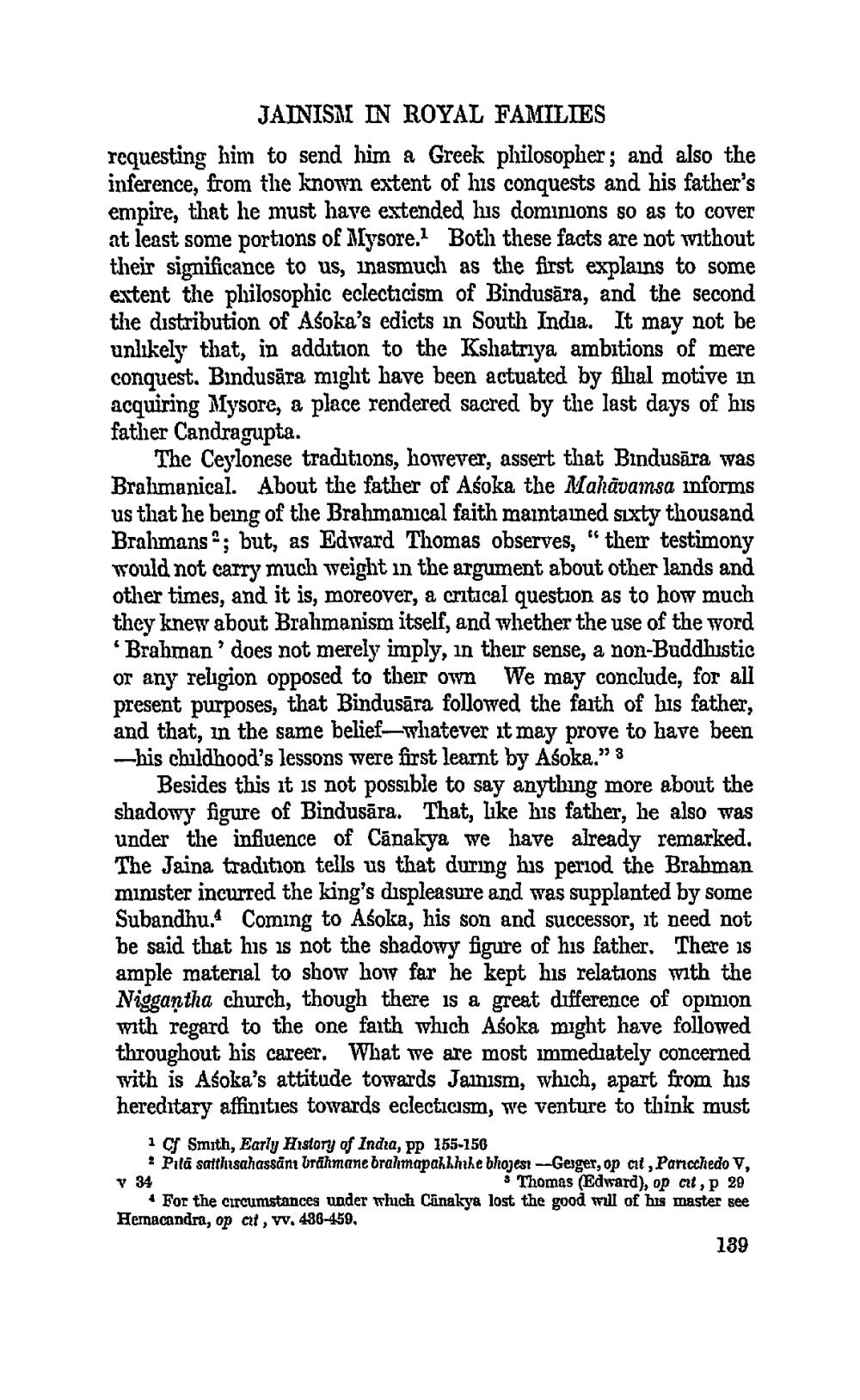________________ JAINISM IN ROYAL FAMILIES requesting him to send him a Greek philosopher; and also the inference, from the known extent of his conquests and his father's empire, that he must have extended his dominions so as to cover at least some portions of Mysore. Both these facts are not without their significance to us, inasmuch as the first explains to some extent the philosophic eclecticism of Bindusara, and the second the distribution of Asoka's edicts in South India. It may not be unlikely that, in addition to the Kshatriya ambitions of mere conquest. Bindusara miglt have been actuated by filial motive in acquiring Mysore, a place rendered sacred by the last days of his father Candragupta. The Ceylonese traditions, however, assert that Bindusara was Brahmanical. About the father of Asoka the Mahavamsa informs us that he being of the Brahmanical faith maintained sixty thousand Brahmans", but, as Edward Thomas observes, "therr testimony would not carry much weight in the argument about other lands and other times, and it is, moreover, a critical question as to how much they knew about Brahmanism itself, and whether the use of the word Brahman' does not merely imply, in their sense, a non-Buddhistic or any religion opposed to their own We may conclude, for all present purposes, that Bindusara followed the faith of his father, and that, in the same belief-whatever it may prove to have been his childhood's lessons were first learnt by Asoka." 3 Besides this it is not possible to say anything more about the shadowy figure of Bindusara. That, like his father, he also was under the influence of Canakya we have already remarked. The Jaina tradition tells us that during his period the Brahman minister incurred the king's displeasure and was supplanted by some Subandhu. Coming to Asoka, his son and successor, it need not be said that his is not the shadowy figure of his father. There is ample material to show how far he kept his relations with the Niggantha church, though there is a great difference of opinion with regard to the one faith which Asoka might have followed throughout his career. What we are most immediately concerned with is Asoka's attitude towards Jainism, which, apart from his hereditary affinities towards eclecticism, we venture to think must 1 C Smith, Early History of Indra, pp 155-150 Pita sattleghassant brahmane brahmapahhhhe Whoest-Gesger, op at, Parchedo V, V 34 Thomas (Edward), op cit, p 29 For the circumstances under which Cinakya lost the good will of his master Bee Hernacandra, op cit, vv. 496-459, 189




